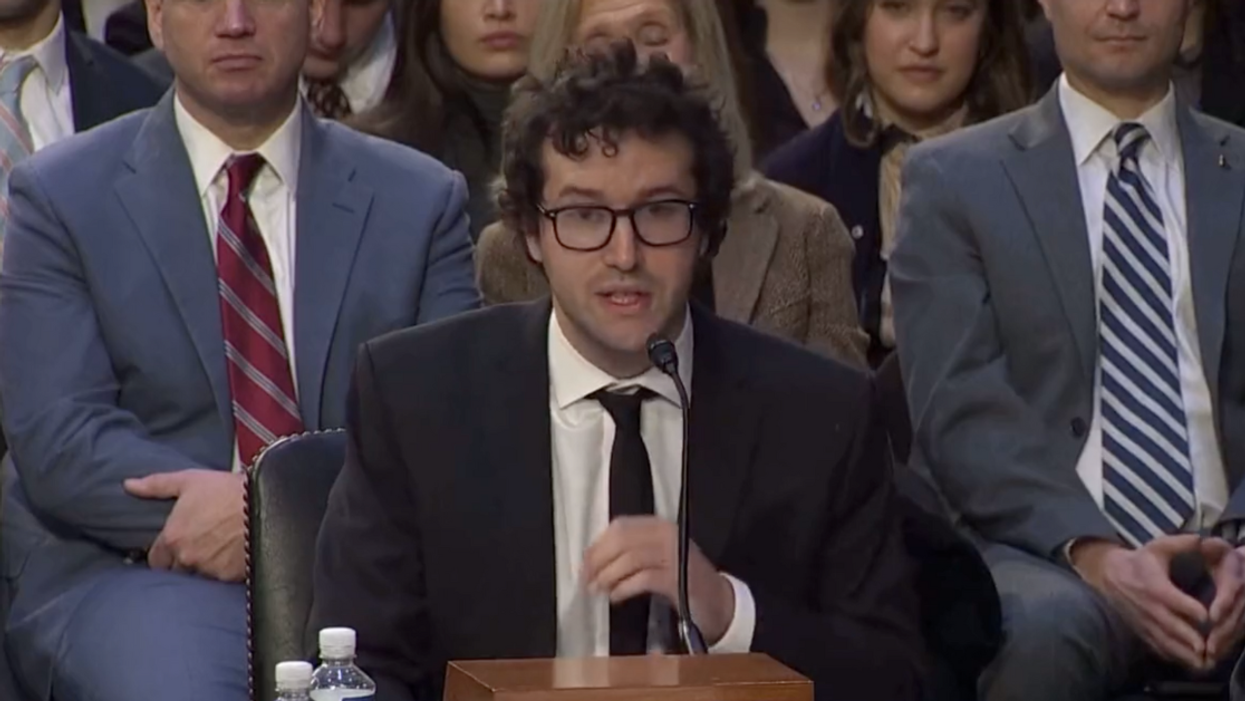The Senate inquiry into Ticketmaster's anticompetitive business practices attracted considerable attention this week due to testimony from singer Clyde Lawrence of the soul-pop band Lawrence, who offered a succinct explanation for how the ticket sales and distribution company hurts artists and their fans alike.
Ticketmaster charges a fee on tickets purchased and resold on the platform. The fees from ticket sales can account for a large percentage of overall ticket costs and have received scrutiny from regulators, customers, and musicians for its fees.
The company has faced scrutiny from the Department of Justice (DOJ) for retaliation against venues violating its 2010 10-year consent decree from its Live Nation merger.
Following the widespread criticism of the company's handling of the pre-sale of singer Taylor Swift's The Eras Tour in November 2022, the DOJ began a formal investigation into Live Nation Entertainment on the grounds of monopoly, antitrust law and consumer rights violations.
According to Lawrence, ever since he and his band started touring, they experienced what "felt like lopsided deal mechanics in certain aspects of the live music industry," so much so that the band's latest album contains a song with the lyric "Live Nation is a Monopoly."
You can hear what he said in the video below.
He said:
"Most of the issues that we face stem from the fact that Live Nation-Ticketmaster often acts as three things at the same time: the promoter, the venue, and the ticket company."
"Let's imagine we just played a sold out show at a venue Live Nation owns and operates. When an artit plays these venues, they're required to use Live Nation as the promoter. Far from simply advertising, the promoter coordinates and pays the upfront costs to put together concerts such as renting and staffing a venue and striking a deal with the performer."
"Since both our pay and theirs is a share of the show's profits, we should be true partners aligned in our incentives: keep costs low while ensuring the best fan experience. But with Live Nation acting not only as the promoter but also as the owner and/or operator of the venue, it seriously complicates these incentives."
"At the end of the show, costs will have eaten into most of the money made that evening and due to Live Nation's control across the industry, we have practically no leverage in negotiating. If they want to take 10 percent of the revenues and call it a 'facility fee,' they can—and have."
"If they want to charge $30,000 for the 'house nut' [operating costs of a theater] they can—and have. And if they want to charge us $250 for a stack of 10 clean towels, they can—and have."
"Once these costs, some of which went to Live Nation's subsidiaries, are taken into account, the remainder is split between Live Nation and the band. In a world where the promoter and the venue are not affiliated with each other, we can trust that the promoter can look to get the best deal from the venue."
"However, in this case, the promoter and the venue are part of the same corporate entity so these line items are essentially Live Nation negotiating to pay itself. Does that seem fair?"
"The tickets were listed at $30 and our pay ended up shaking out to about $12 of each ticket. But in this hypothetical show, the fan did not pay $30 for that ticket. The fan paid $42 because Ticketmaster tacked on a 40 percent fee and for the record we've had them go as high as 82 percent."
Lawrence's testimony quickly went viral and prompted many to express their frustrations with Ticketmaster and Live Nation as well as with monopolies in general.
Lawrence was clear that the issues he outlined in his testimony "are not specific to Live Nation/Ticketmaster" but that the company’s "powerful position across the industry makes it a leader in setting standards" and that "their horizontal and vertical reach makes it hard to create competition."
Ticketmaster has been met with widespread censure nationwide since Taylor Swift's fans brought attention to the company's predatory behavior that caused The Eras tour's presale crash.
Last month, fans of the singer filed a lawsuit against Ticketmaster and Live Nation, accusing them of fraud, antitrust violations, and price-fixing. In the lawsuit, fans demanded $2,500 for each violation, which could potentially amount to several million in total.














 @DuncanCecil/X
@DuncanCecil/X @@realDonaldTrump/Truth Social
@@realDonaldTrump/Truth Social @89toothdoc/X
@89toothdoc/X @xray_media/X
@xray_media/X @CHRISTI12512382/X
@CHRISTI12512382/X
 @sza/Instagram
@sza/Instagram @laylanelli/Instagram
@laylanelli/Instagram @itssharisma/Instagram
@itssharisma/Instagram @k8ydid99/Instagram
@k8ydid99/Instagram @8thhousepath/Instagram
@8thhousepath/Instagram @solflwers/Instagram
@solflwers/Instagram @msrosemarienyc/Instagram
@msrosemarienyc/Instagram @afropuff1/Instagram
@afropuff1/Instagram @jamelahjaye/Instagram
@jamelahjaye/Instagram @razmatazmazzz/Instagram
@razmatazmazzz/Instagram @sinead_catherine_/Instagram
@sinead_catherine_/Instagram @popscxii/Instagram
@popscxii/Instagram
